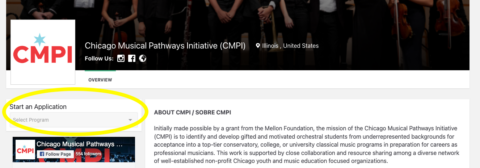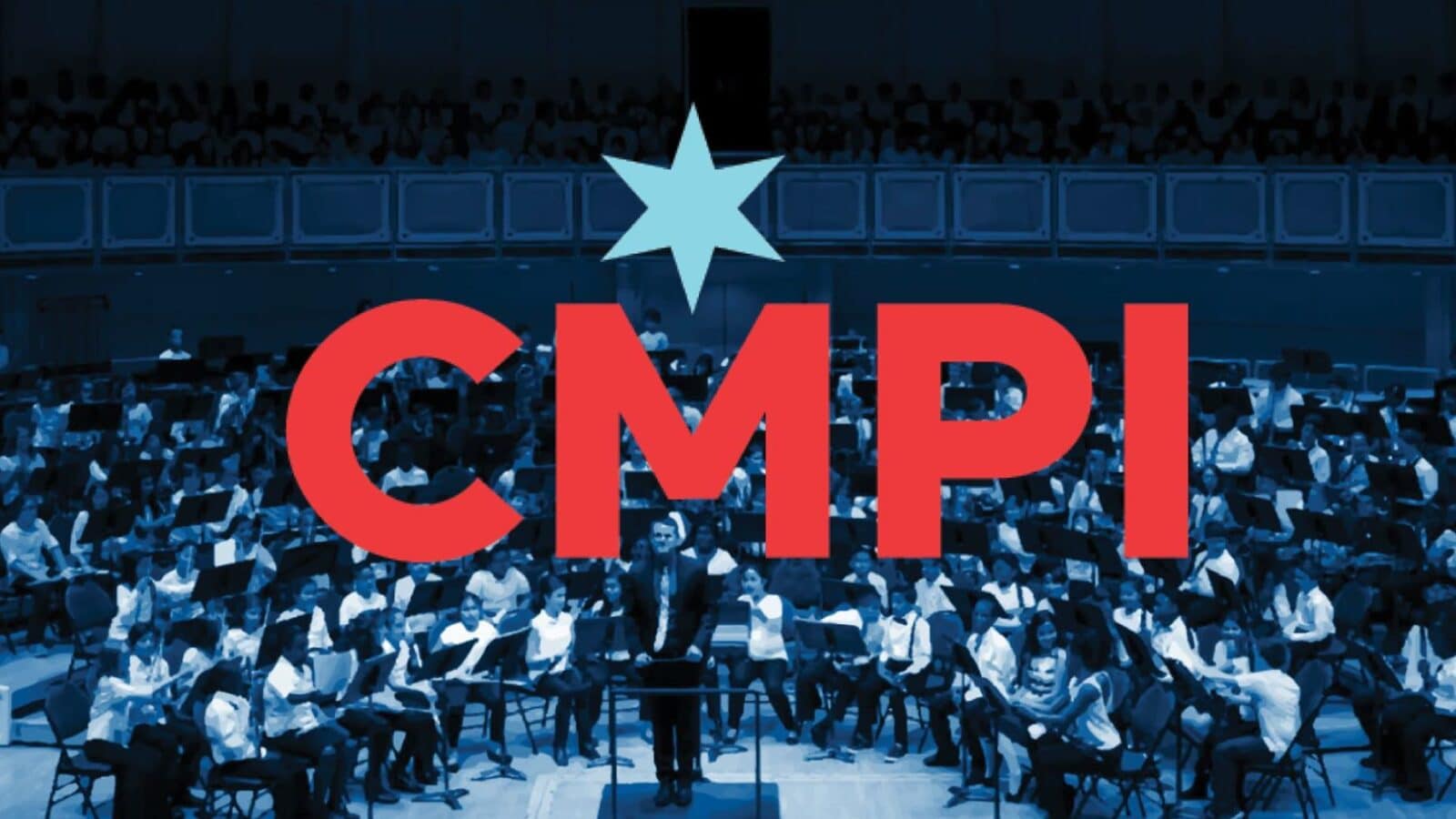We’ve talked a lot about all the accomplishments of CMPI students, but have you ever wondered what the process is like to become a CMPI fellow? This article will take you through all the steps of the process, concluding with some information on this year’s new fellows.
One of the first questions asked is who qualifies for CMPI. The program is designed to support middle and high school musicians from groups that are traditionally underrepresented in classical music. This includes students of certain racial or ethnic backgrounds, such as African-American, Latinx, American Indian, Alaskan Native, or South Asian and Pacific Islander, as well as students of all backgrounds who are refugees, low-income, or will be the first in their family to attend college. Students who are of multiple races or ethnicities are welcome to apply if at least one race/ethnicity falls into the aforementioned categories. While students of all income levels may apply, the amount of financial support granted is income dependent. In addition, students must live in the Chicago area, including students from Indiana and Wisconsin, and must play a standard orchestral instrument. See the CMPI Audition Page for more information.
The Application
The first step of the process is to complete an application, usually around the beginning of February. At this point, no videos are required. You simply fill out the application, hit submit, and you are done!
CMPI uses a website called Acceptd to process applications. To use this website, you will need an account. Students who are 16 and older can create their own account, but younger students will need a parent to create an account and then make a child account for them. The process is simple and straightforward and additional help is available here. Once you have created your account and are logged in, you can go directly to the CMPI application using this link, or search for CMPI on the Acceptd website by clicking Directory. There is a $30 fee to apply through Acceptd; however, fee waivers are available for low-income families. Click here for fee waiver information.

Make sure when you apply that you pick your instrument from the “Start an Application” menu on the left. The application itself is pretty straightforward. You will need to provide information about both yourself and your parents, as well as any private teachers or school music teachers, if applicable. There are also a few short answers questions outlining why you want to participate in the program and past participation in orchestras, camps, pre-college, or other musical programs.
The Informational Session
Once your application has been submitted, you will be contacted by CMPI to attend an informational session. Depending on the year, these may be held in person or virtually. These meetings, which last roughly an hour and a half, are designed to provide general information about the program and answer any questions you have.
The Prescreen Video
After your informational session, your application on Acceptd will open back up and ask you to submit a prescreening video. This video should be less than 10 minutes long and contain all the required elements for your age and instrument. These requirements are listed on both the CMPI website and the Acceptd application. Typically, middle school students prepare two contrasting pieces/etudes and a scale. High school string players prepare a concerto movement, a contrasting piece (often Bach), an etude, and a scale. High school winds, brass, and percussion have more particular requirements, which may include specific etudes or excerpts. Note that in order to keep the video under 10 minutes, applicants typically only play a few minutes of each solo piece. Make sure that you state your name and grade in the video and announce each piece or excerpt that you play, including the name of the composer and the name of the piece or excerpt. Videos should be one continuous take without editing.
Don’t worry if your video is not perfect! Everybody make mistakes, and everybody is always still learning. Having said that, it is normal to record the video a few times to make sure it represents your best playing.
Home recordings with a phone, video camera, webcam, or still camera on video setting are all perfectly acceptable. The Acceptd platform accepts most common video formats. You will also need to upload PDF copies or photographs of the sheet music for the pieces you played. Many piece PDFs can be found for free in an online catalog of music called IMSLP (International Music Score Library Project). You simply save a clean copy of your piece and then upload it to the application without having to do any scanning or photographing.
Semifinalist Requirements
Prescreen videos are reviewed by CMPI staff or other professional musicians, and students who are likely candidates for the program become semifinalists. At this point, you will need to complete a home visit, upload letters of recommendation, upload income verification information, and record a final video.
The first step for semifinalists is a home visit, which includes a CMPI staff member visiting the home and talking to the student and parents directly about their interests in music. These visits are informal and nothing to get nervous about! CMPI mostly wants to get to know the student and family and answer any individualized questions. You don’t need to prepare anything in advance for this meeting.
Your Acceptd application will again reopen, and at this point you will need to submit two letters of recommendation from your private teacher, orchestra director, or other individuals who know you well. Parents will need to submit a tax form or other document verifying your family income.
Your final audition video follows the same guidelines as the prescreen video. It is fine to play the same pieces or to perform something different; however, in some cases, you will be required to play the same excerpts. The most important thing about this video is to show that you have made progress in the month between the two videos.
Final Results
After a few weeks, you will be notified if you have been accepted as a CMPI Fellow. If you are accepted, congratulations! If not, you are welcome to reapply the next year up until eleventh grade.
After acceptance, there will be more paperwork to complete, including a participation agreement and a statement of how much financial support you will receive. Students officially become fellows in the fall, but often are able to attend summer events including concerts or social events.
Meet This Year’s Fellows!
This year, CMPI had nine students successfully complete the application process to become official fellows this fall. They include three middle schoolers and six current or entering high schoolers. Six students are from Chicago, two from the suburbs, and one from Indiana. Cello was this year’s dominant instrument, with three cellists, and one student each on violin, viola, flute, trumpet, trombone, and bass trombone. They are drawn from many programs in the area, including Chicago Youth Symphony Orchestras, Merit School of Music, Hyde Park Youth Symphony, and ChiArts, among others. Stay tuned for more information on these new fellows in the fall!
Aki Santibanez, Violin
Angel Alday, Trombone
David Roche, Viola
Dhruv Moorthy, Bass Trombone
Juliana Doolin, Cello
Ken Tabuchi-Yang, Cello
Olivia Villa, Flute
Saul Cirilo, Trumpet
Wynstan Williams, Cello
Images
CMPI
